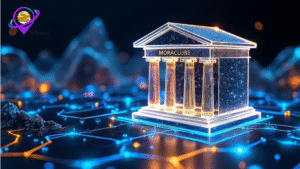Wall Street Embraces Event-Based Trading
When news broke that the New York Stock Exchange’s parent company was reportedly preparing a $2 billion investment into Polymarket, it felt like more than just another crypto deal. I think this signals something deeper happening in finance. Institutions are starting to recognize that probability itself has become a tradable asset.
For centuries, markets have focused on pricing physical things – commodities, stocks, bonds. But prediction markets represent a fundamental shift. They’re not pricing what exists, but what might happen. Whether inflation will drop below a certain level, whether a political candidate will win, whether interest rates will change – these outcomes now have market prices that reflect collective probability assessments.
How Blockchain Enables Probability Trading
What makes this possible now, when similar concepts have existed for years? The answer lies in Web3 infrastructure. Smart contracts handle settlements automatically, oracles verify real-world outcomes, and liquidity pools provide transparent pricing. Together, these elements transform abstract probabilities into programmable financial instruments.
The CFTC’s recent approval of Polymarket created a regulatory pathway that matters more than people might realize. It’s not just about allowing betting on events – it’s about creating a framework where decentralized markets for belief can operate within established financial systems.
Perhaps the most interesting aspect is how this changes information itself. In a world flooded with AI-generated content and misinformation, verified truth becomes increasingly valuable. Prediction markets create financial incentives for accuracy – you’re rewarded for being right and penalized for being wrong. This turns markets into what some call “truth machines” where prices reflect real conviction rather than narrative.
From Sports to Mainstream Finance
The cultural shift is already underway. DraftKings acquiring Railbird, the NHL signing deals with prediction platforms – these moves matter because they normalize the idea that “odds” are actually market prices. When millions of sports fans start understanding probabilities as tradable truth, the barrier to institutional adoption drops significantly.
For traditional finance, this creates an entirely new way to manage risk. Instead of buying stocks to express confidence in a company, investors can directly trade contracts representing belief in specific outcomes. The efficiency gains are substantial – fewer intermediaries, faster price discovery, clearer alignment between incentives and accuracy.
Some might dismiss this as too speculative or niche. But I remember similar skepticism about crypto derivatives years ago. Once liquidity, regulation, and user familiarity converge, new asset classes rarely stay small for long.
What we’re witnessing is the financialization of probability itself. If the first phase of DeFi was about tokenizing assets and the second about tokenizing yields, this next phase appears to be about tokenizing belief. The lines between finance, culture, and technology continue to blur, and the market for forecasting future events isn’t just coming – it’s already being actively traded.






